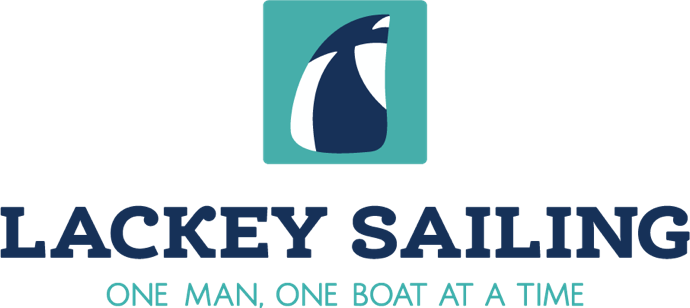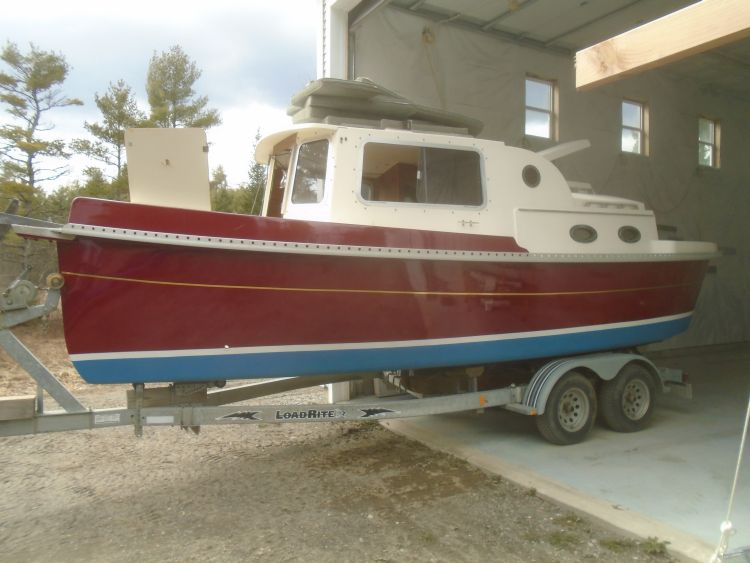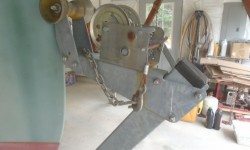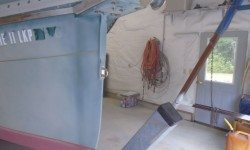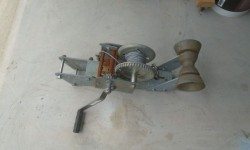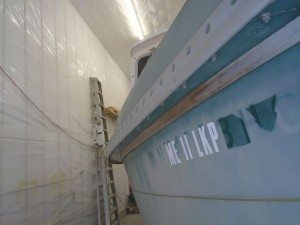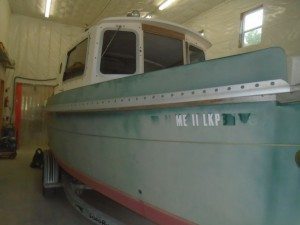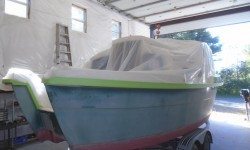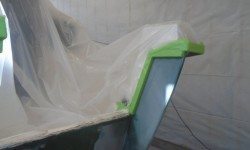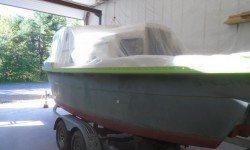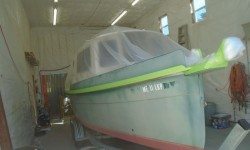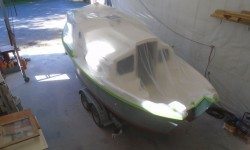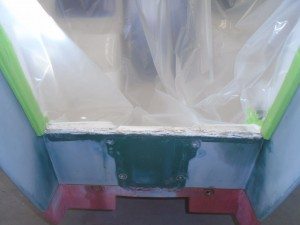September 12, 2015
Nomad 5
With the “pressures” of summer winding down, and the prospect of unscheduled weekends ahead, I began to prepare the boat for the next task ahead: painting the hull. I chose to get this out of the way first so that I could snuggle the boat into a corner of the shop for most of the winter, leaving room indoors for some other projects and storage of other things. Once the hull paint was done, I’d have little need to access the boat from anywhere but inside, where the bulk of additional work would occur, so I could live without access all around.
To begin, I removed the winch and bow roller assembly from the trailer to open up access to the stem for masking and prep work.
After removing the tools I’d left on the boat after my last session, I prepared to mask off and cover the decks with plastic, the first step towards hull preparation. The boat’s construction featured an outward hull flange and shoebox-type hull/deck joint, covered with and protected by an aluminum toerail. With hull color on the underside of the outward flange, I’d need to paint that area; plus, the bow sections featured a raised bulwark that, on this boat, was hull color, so I’d need to mask off both the aluminum rails as well as the deck within, slightly complicating the masking and covering process.
There was a teak molding at the juncture between the hull and the outward flange; this molding, while noticeable while the boat was on the trailer, was not something that would be visible when the boat was in use, and rather than fuss with masking it and dealing with its appearance in some other way, I decided it would be fine to simply prep and paint it along with the hull. In the areas at bow and stern where teak trim extended beyond this sheltered area, I’d treat the teak normally, with varnish.
I masked the lower edge of the aluminum toerail to protect it while working on the underside of the outward flange, then masked various teak trim bow and stern as needed to cover it before draping plastic sheeting over the deck and taping it to the decks and toerail as required, leaving exposed the bulwarks forward.
The outboard well at the transom featured some cracking (as per usual) in the seam between hull and deck moldings, and since I wanted to repair and lightly reinforce this joint I masked the plastic inside the transom, leaving the top and edge exposed.
Total Time Billed on This Job Today: 3.5 Hours
